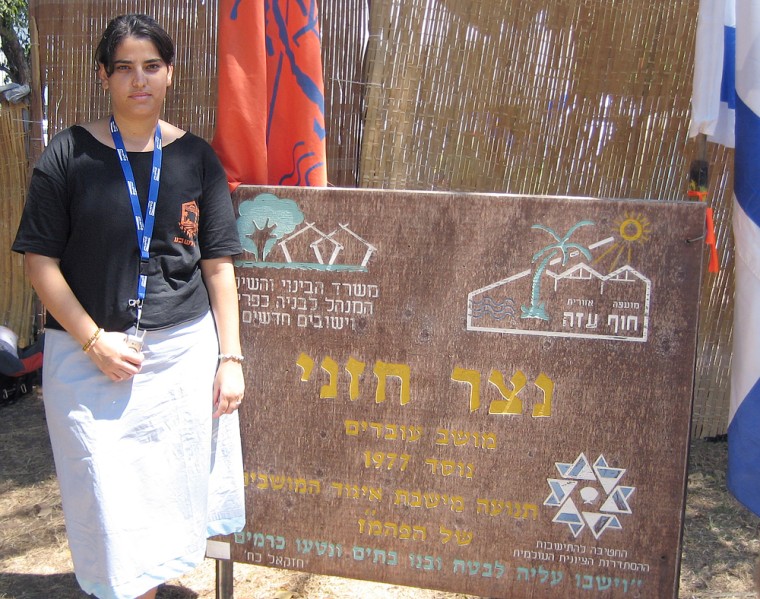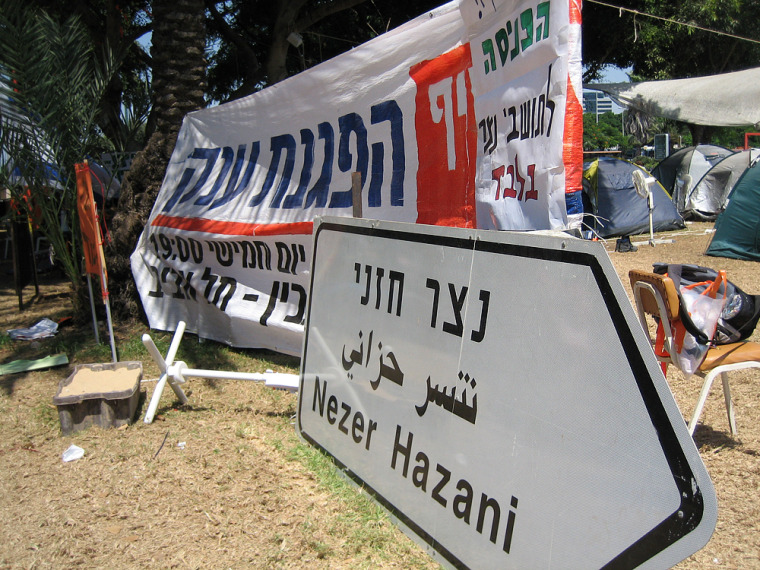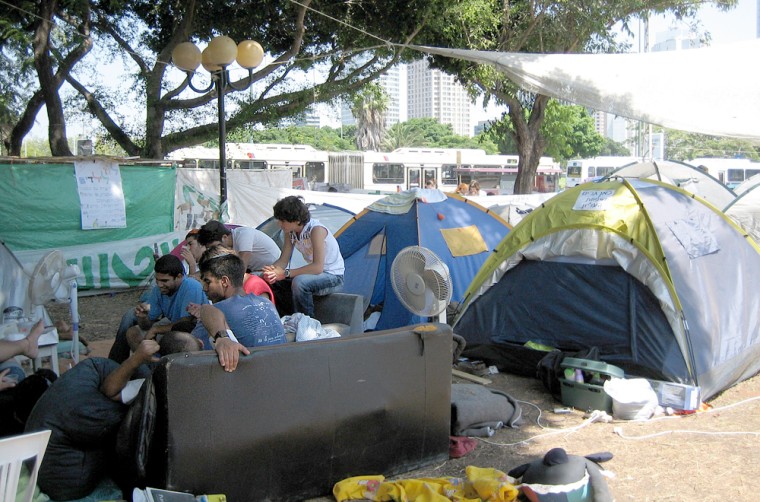TEL AVIV — What Tzela Gadon misses most about Gaza are the Friday evenings that her family of six would sit together in their home, playing games and relaxing after dinner.
That home is now a pile of rubble. As part of a settlement called Nezer Hazani, it was torn down a few days after the Gadons and 80 other families left the area for good last month.
It took a few days after they left and their house had been destroyed for reality to hit fully. “We all sat around and cried,” said the 24-year-old art student at Ben Gurion University in Be’er Sheva. “We didn’t realize we didn’t have a house to go home to.”
As the world now focuses on the Palestinians and their efforts to build Gaza into a self-governing territory, the pain of the disengagement is still fresh for those forced to leave their homes. A month after evacuating their communities, former settlers are only now beginning to rebuild their lives and accept that they will never return to the villages where some of them lived for 30 years.
“We are coming back to the world,” said Gadon from temporary accommodation, a two-room apartment she has moved into along with her mother and siblings in Kibbutz Ein Tzurim in southern Israel.

Disbelief that the government would actually go through with the plan kept many of the families from making alternate living arrangements in the months before the pullout, including Gadon and several family members, who spent 12 days in a roadside camp near Tel Aviv before moving to the kibbutz.
In preparation for the pullout, the Disengagement Authority built 600 caravillas, a combination of trailer and villa meant to house the former settlers during their transition to permanent homes.
It also reserved guest houses, hotels and apartments around the country to accommodate the newly homeless. In addition, compensation packages were offered to all displaced settlers, though there are still 1,500 families who have not yet started the process of compensation, according to Gal Alon, a spokesman for the Disengagement Authority.
Individual settlements, working through appointed heads and government liaisons, are now trying to create new communities in other parts of Israel. But the process is a slow one; land must be obtained, houses and schools built, farms planted. Israel’s Disengagement Authority figures it will take at least two years for displaced Israelis to get permanently settled.
“The mental problem is still the major one,” said Alon. “It’s still very hard for them. Some of them just last week realized what’s going on.”
A jump start
Not that matters are necessarily much better for the more pragmatic communities that began the process of resettlement long before Israeli soldiers knocked on their doors with evacuation orders.
For instance, a group of 24 families from the Eli Sinai settlement in the northern Gaza Strip began negotiating with the government in March with the hopes of quickly establishing a new community, but the group has yet to see much progress in its attempts to establish a small village not too far from the southern coastal cities where many of them work. For now, they are living in the government’s caravillas on Kibbutz Karmiya, five minutes away from their old homes.
“When we sit with the government we have the feeling that they really want to help us. But the results are that we are still in the same point as we were when we started to speak with them a few months ago,” said Shosh Schatz, 40, who is her group’s representative in the negotiations. She lived for 10 years in Eli Sinai, surrounded by friends in what she calls paradise near the sea.
“We want to stay together as a community, and we have a feeling that the government wants us to take the [relocation] money and buy homes,” said the school administrator and mother of three. “But there is no place where we can buy 24 houses together.”
In addition, there is the problem of price. Schatz says her house in Gaza was valued at $50,000 by the government, but the price of a house nearby is around $77,000.
“We feel like our life is a big mess and out of control,” she said. “It’s not a nice feeling or nice way to live.”
Putting up a fight
Several groups of settlers have refused to take government offers of housing, for the time being, at least. Some families accepted offers of temporary housing from like-minded settlements on the West Bank; others protested their eviction by camping out in city parks and on the side of a major highway, actions guaranteed to draw attention from the Israeli public.

For 12 days after the pullout, a group of families from Nezer Hazani moved into a dusty park across the street from a Tel Aviv bus and train station.
“Here at least the government is not ignoring us,” said Gadon while she was a resident of the makeshift camp, complete with tents, a dining area, portable toilets donated by the city and a information desk for curious passers-by. “Here we are making noise.”
After meeting upon meeting with the Disengagement Authority and Tel Aviv city officials, the group finally moved to a guest house at Ein Tzurim.
As the school year starts, children return to school and families try to put their former life behind them, even the optimistic are finding that replanting roots will take much longer than they expected. Schatz, upset that her group’s advance planning has left them in the same situation as others who tried to ignore that the disengagement was coming, says that her sons are now acting up in school and she can hardly concentrate at her work while still unsure about their future.
“Nothing is sure,” said Gadon, who is negotiating with professors to give her extensions on papers she was unable to complete over the summer. “It’s the unknown that’s killing us.”
